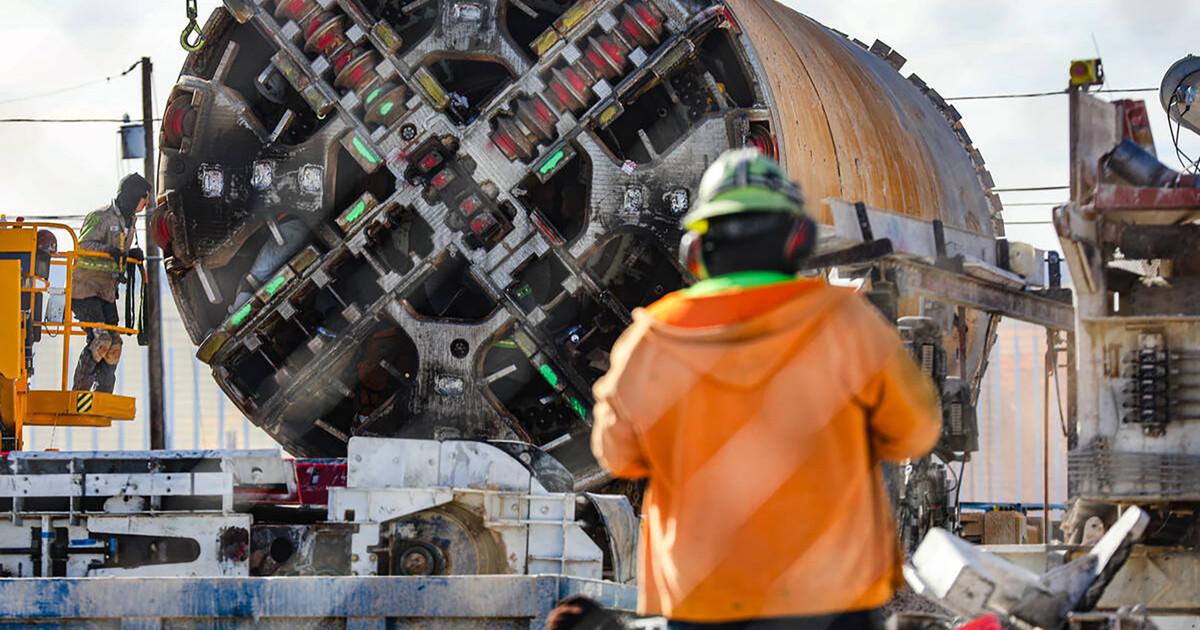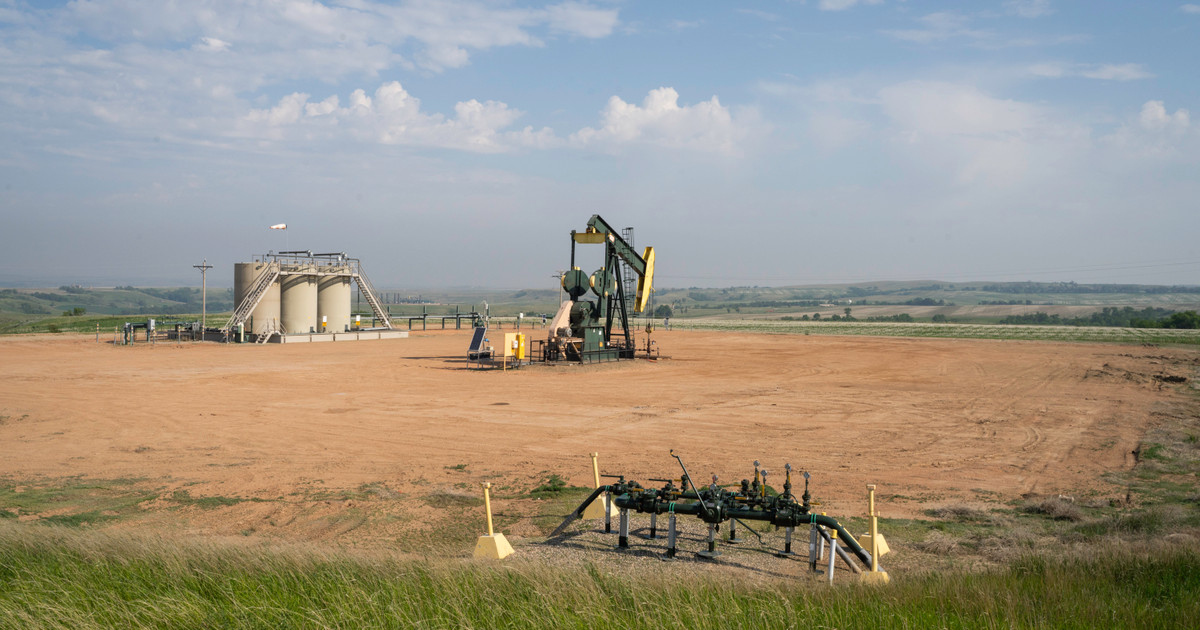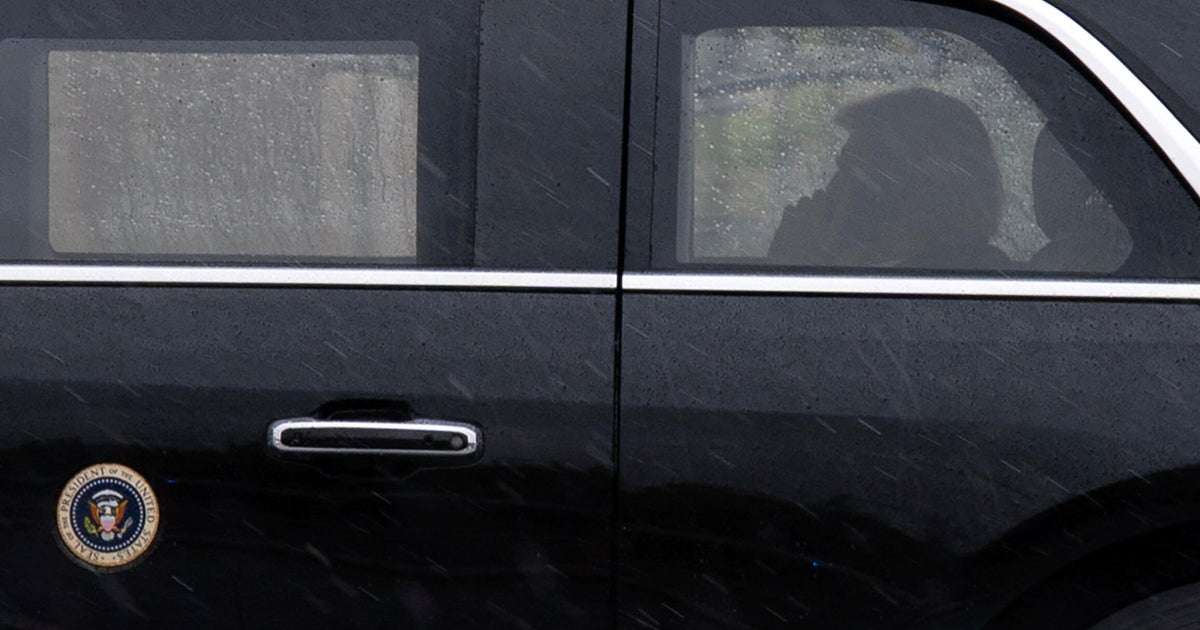
Nevada state regulators are holding Elon Musk’s Boring Company accountable for an alarming 800 alleged violations of environmental regulations over the past two years as it constructs a vast tunnel network beneath Las Vegas for its Tesla-powered “people mover.” These violations, which include commencing excavation without approval, discharging untreated water onto city streets, and allowing muck spills from its trucks, highlight a blatant disregard for environmental safety and public health.
A cease-and-desist letter from the state Bureau of Water Pollution Control, dated September 22, outlines the company’s repeated flouting of a settlement agreement established after it was fined five years ago for similar infractions. The agreement, signed by a Boring executive in 2022, was designed to ensure compliance with state water pollution laws. Yet, in a shocking display of negligence, inspectors documented nearly 100 new violations, alongside a failure to hire an independent environmental manager, resulting in 689 missed inspections.
The Boring Company’s rebuttal to these claims casts doubt on its commitment to environmental stewardship. Notably, the Nevada Division of Environmental Protection had the authority to impose fines exceeding $3 million for these infractions under the 2022 agreement, which allowed for daily penalties. However, it opted for a mere $242,800 penalty, significantly reducing potential fines related to the missed inspections. This raises serious concerns about the effectiveness of regulatory frameworks designed to protect our environment and public health.
Regulators claim that the reduced penalty — just $5,000 per permit for 11 permits — is sufficient to deter future non-compliance. However, how can a slap on the wrist serve as a deterrent against a company valued at $7 billion? The notion that financial penalties could encourage compliance is fundamentally flawed when those penalties are dwarfed by the immense profits these corporations reap.
In an ironic twist, Musk himself has previously dismissed environmental regulations as “largely terrible,” advocating for a model that prioritizes paying fines over seeking prior approval — a dangerous philosophy that undermines the very foundations of environmental protection. His remarks at a libertarian event reflect a troubling worldview that places profit above planetary health and community safety.
Neither Musk nor the Boring Company has offered any comment regarding the latest allegations. This silence speaks volumes about their lack of accountability and transparency. The latest infractions add to a troubling pattern of regulatory evasion, where the Boring Company has repeatedly sought exemptions from oversight, arguing that its project falls outside existing regulation parameters. Such maneuvers not only undermine public trust but also compromise environmental integrity.
The Loop project, which began in 2019 with the initial vision of a mere 0.8-mile underground route, has morphed into a sprawling 68-mile network with 104 stations. This ambitious undertaking, executed in partnership with the Las Vegas Convention and Visitors Authority (LVCVA), is rife with allegations of insufficient safety protocols and inadequate oversight. Workers have reported chemical burns from waste materials and dangerous conditions, with one worker suffering a “crush injury” after being pinned between heavy pipes. Such incidents highlight a systemic neglect of worker safety in the pursuit of profit.
Despite the apparent dangers, LVCVA officials have defended the project, asserting that it is appropriately regulated. They cited instances where local officials delayed a Loop station’s opening due to safety concerns. However, these assertions ring hollow in light of the overwhelming evidence of regulatory failures and environmental disregard. As Ben Leffel, an assistant public policy professor at the University of Nevada, Las Vegas, aptly noted, the continued violations suggest that public safety is not being prioritized.
The Boring Company’s cavalier approach to environmental regulations underscores a broader systemic issue — the prioritization of corporate interests over community welfare and environmental health. It raises the critical question of who is ultimately held accountable when powerful entities flout the law with impunity. The state’s response to these violations reflects a troubling leniency that emboldens corporate malfeasance.
As regulators continue to monitor the situation, the public must demand accountability and transparency from both the Boring Company and the local authorities tasked with safeguarding the environment and public health. Fines that barely make a dent in corporate profits are insufficient deterrents for companies like the Boring Company, which must be held to the highest standards of environmental and public safety.
In an age where the climate crisis looms larger than ever, the need for robust regulatory frameworks and uncompromising enforcement has never been more urgent. The Boring Company’s ongoing violations serve as a stark reminder that without accountability, the environment and the communities that depend on it will continue to bear the brunt of corporate negligence. The time for change is now, and we must hold those in power accountable for their actions.
This article highlights the importance of Company’s Environmental Defiance.


